The race for AI infrastructure dominance is heating up like never before.
From billion-dollar partnerships to massive data center investments across continents, tech giants are reshaping the landscape of artificial intelligence technology at an unprecedented scale. Throughout mid-November 2025, we've witnessed a shift in how companies are approaching AI development, with players like OpenAI, Microsoft, Google, and Amazon making transformative moves that signal where the future of intelligent systems is headed.
This article will explore the most significant AI infrastructure investments and partnerships announced in mid-November 2025, breaking down what each development means for the industry, examining the competitive dynamics at play, and revealing how these moves are setting the stage for the next generation of AI innovation.
OpenAI Releases GPT-5.1 with Enhanced Reasoning and Natural Conversations
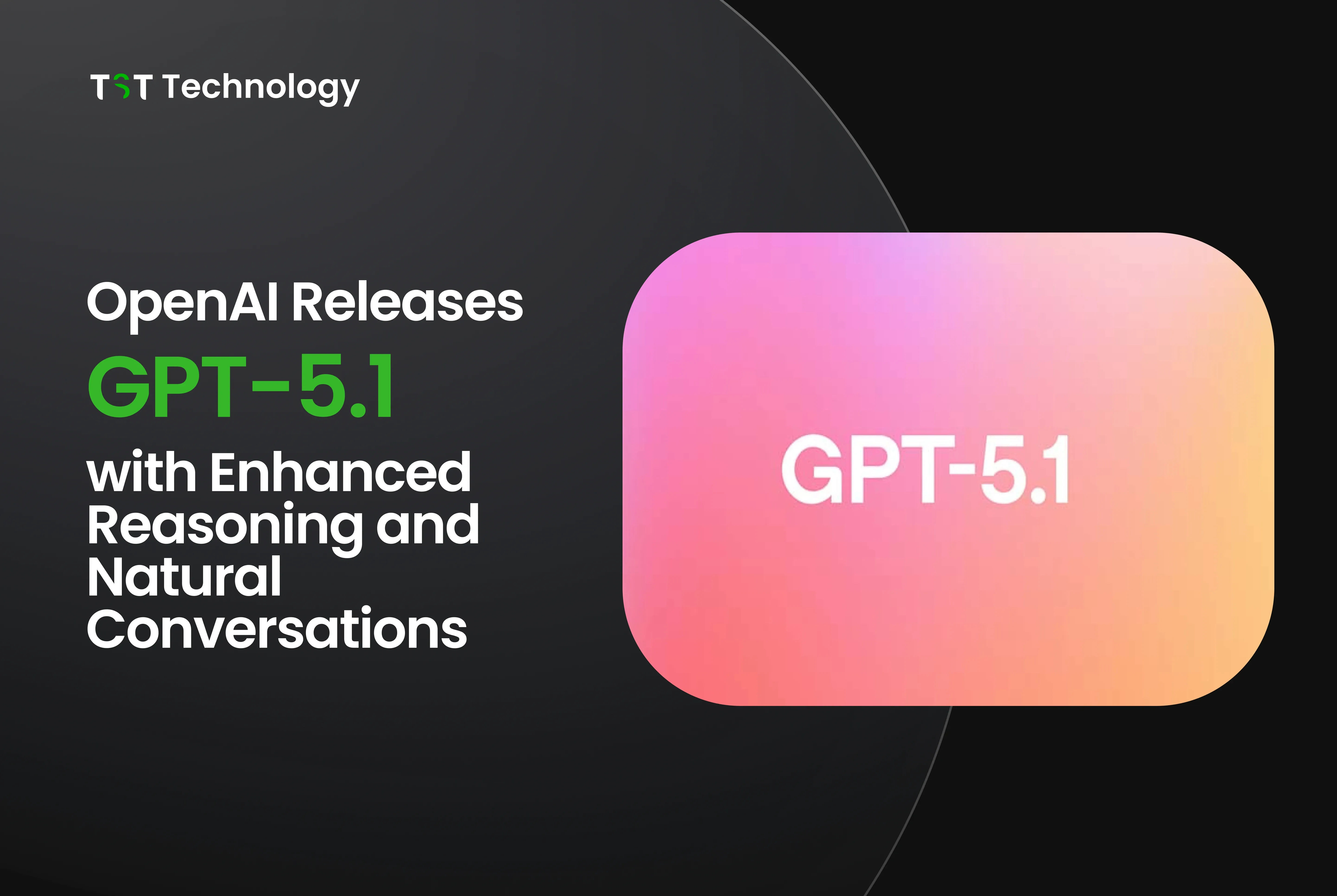
OpenAI started rolling out its new model, GPT-5.1. It comes in two types: GPT-5.1 Instant, which is fast and feels natural in conversation, and GPT-5.1 Thinking, which is made for harder tasks and deeper reasoning. Both versions follow instructions better, think more smartly, and give clearer answers. Paid users got access first, and free users received it a few days later. Enterprise and education users also got a special early-access option.
GPT-5.1 Instant can now decide on its own when it needs to think more deeply, so it can give better answers without slowing down. The Thinking version gives easier-to-read replies with less technical language, making it great for work and learning. Older GPT-5 models are still available for three months, so users can switch slowly. API access also launched the same week, with Instant available as gpt-5.1-chat-latest. Personalization settings now update instantly in all chats. CEO Sam Altman said he is especially excited about the improved instruction-following and smarter adaptive thinking.
Nebius Group Signs $3 Billion Deal with Meta for AI Infrastructure
Nebius Group, a cloud company based in Amsterdam, announced a big five-year deal worth about $3 billion to provide AI infrastructure to Meta. This is their second major partnership of 2025, following a $17.4 billion deal with Microsoft earlier in the year. Under the new agreement, Nebius will supply the GPU power and high-performance cloud systems Meta needs to train and run its AI models. The company also promised to deliver all the required infrastructure within three months.
The deal highlights how competitive the AI market has become, with many companies fighting to secure enough GPUs as demand hits record levels. Nebius said demand was so high that they had to limit the contract size because they didn’t have enough immediate capacity to meet all of Meta’s needs. In the third quarter, Nebius saw its revenue jump by 355% to $146.1 million, but it still reported losses of over $100 million due to heavy spending on expanding its infrastructure, which pushed capital expenses up to $955.5 million.
AWS and OpenAI Announce $38 Billion Multi-Year Strategic Partnership
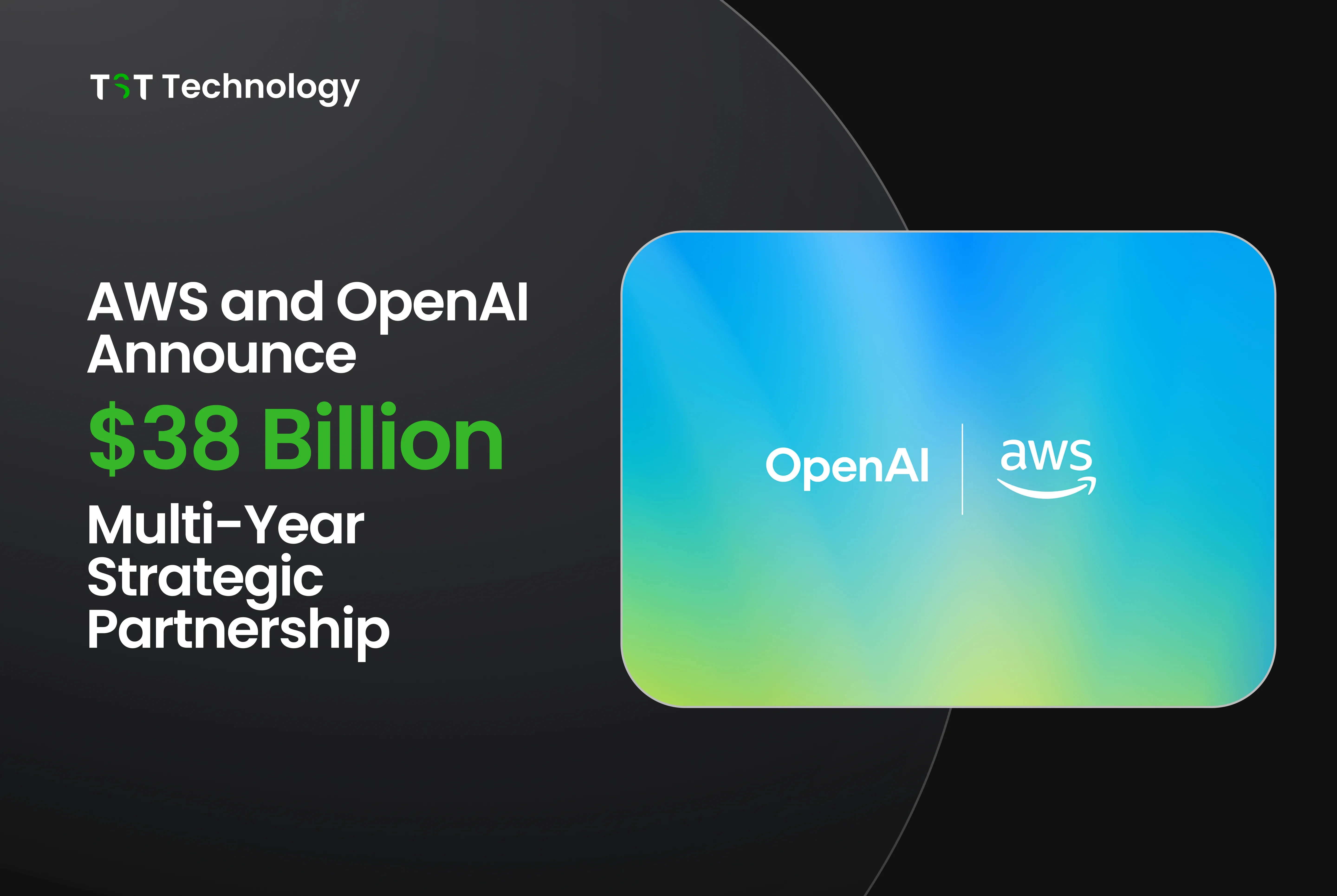
Amazon Web Services (AWS) and OpenAI have signed a huge multi-year partnership worth $38 billion, with the possibility to grow even more until 2027 and later. Through this deal, AWS will give OpenAI access to a massive amount of computing power, including hundreds of thousands of NVIDIA GPUs and the ability to scale to tens of millions of CPUs. This partnership is designed to help OpenAI run and expand its AI systems smoothly.
AWS will provide OpenAI with EC2 UltraServers built with advanced NVIDIA GPUs like the GB200 and GB300. These systems are set up to work together with very low delay, making them ideal for training new AI models and running tools like ChatGPT. AWS plans to deliver most of this compute power before the end of 2026, with room to expand later. Sam Altman said that building powerful AI needs huge and reliable compute, and this partnership helps achieve that.
AWS CEO Matt Garman added that AWS is uniquely prepared to support such large AI workloads. This deal also works alongside OpenAI’s other partnerships with Nvidia, AMD, and Google, giving OpenAI many options for chips and data centers.
Apple Nears $1 Billion Annual Deal with Google for Gemini AI Integration in Siri
Apple is close to finalizing a major deal with Alphabet, Google’s parent company, to license a special 1.2 trillion-parameter Gemini AI model. Apple will reportedly pay about $1 billion each year for this. The model will be used to completely rebuild Siri, giving it a much better understanding, summarizing, and multi-step task abilities. The new Siri, code-named Linwood, is planned to launch with iOS 26.4 next spring.
This deal marks a big change for Apple, which usually builds its own AI systems. Gemini will serve as a temporary solution until Apple finishes its own large cloud model expected in late 2026.
Importantly, Gemini will run on Apple’s Private Cloud Compute servers, so Google cannot access any user data. Gemini will handle complex planning and summarization, while Apple’s internal models will manage the rest of Siri’s features. The partnership will stay quiet and behind the scenes, with Google acting only as a technology supplier and a public partner.
Microsoft Announces $10 Billion Portuguese AI Data Hub Investment
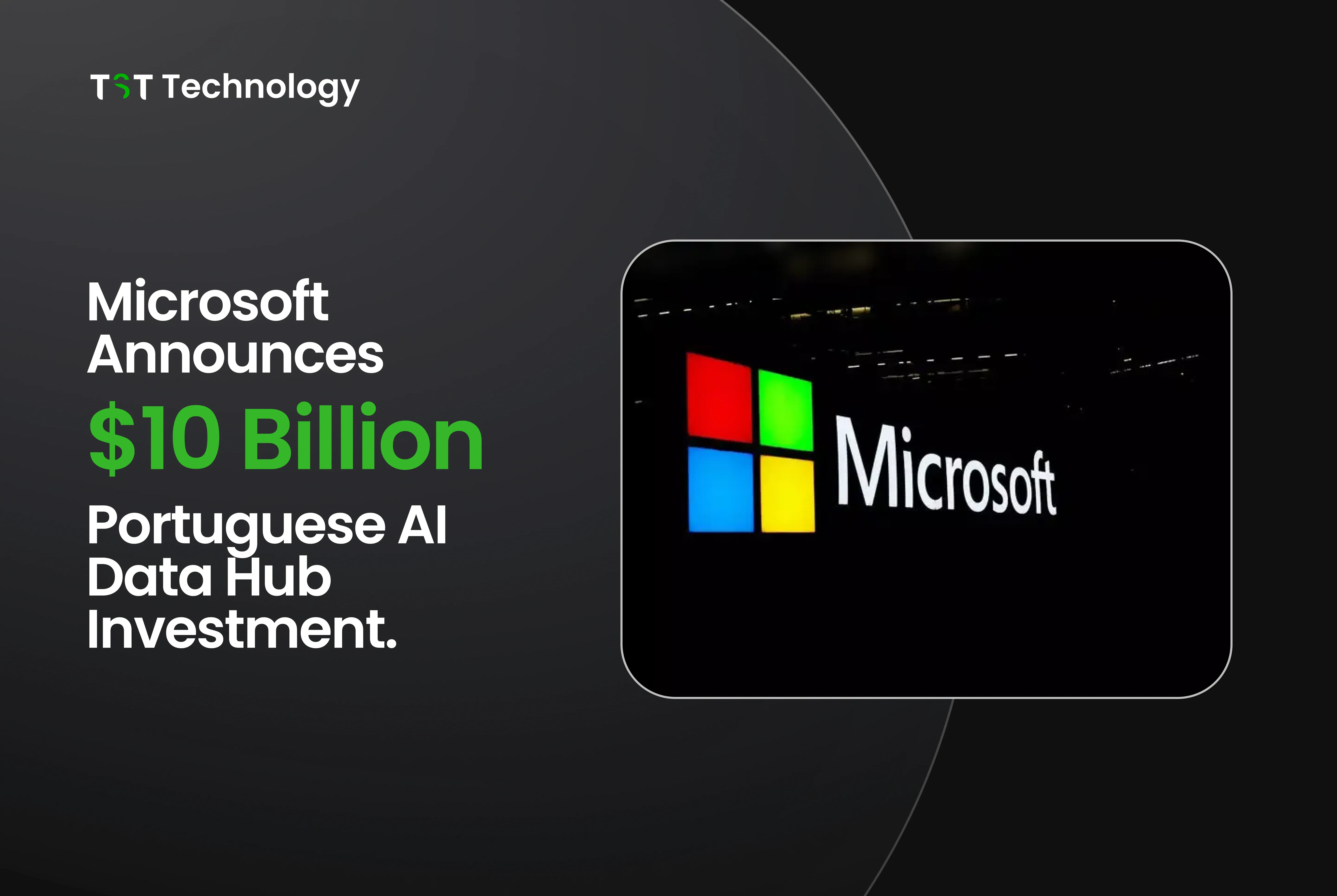
Microsoft announced a major $10 billion plan to build a large AI data center complex in Sines, Portugal. This multi-year project will turn Portugal into an important hub for AI infrastructure in Europe. It is also one of the biggest AI investments ever made in Europe by a major tech company.
This new data center project shows Microsoft’s strategy to expand its AI infrastructure across more regions, rather than relying solely on traditional cloud locations facing capacity limits. The move supports Europe’s goals for digital independence and gives the region more computing power for AI research and business use. Such strategic infrastructure expansions often require sophisticated
IT consulting services to optimize architecture design, security frameworks, and long-term scalability planning. It also shows how big tech companies are expanding AI infrastructure outside the U.S. as global rules and political factors influence where computing resources are built.
Google Major Updates
Google Launches Private AI Compute for Cloud-Based Gemini Processing
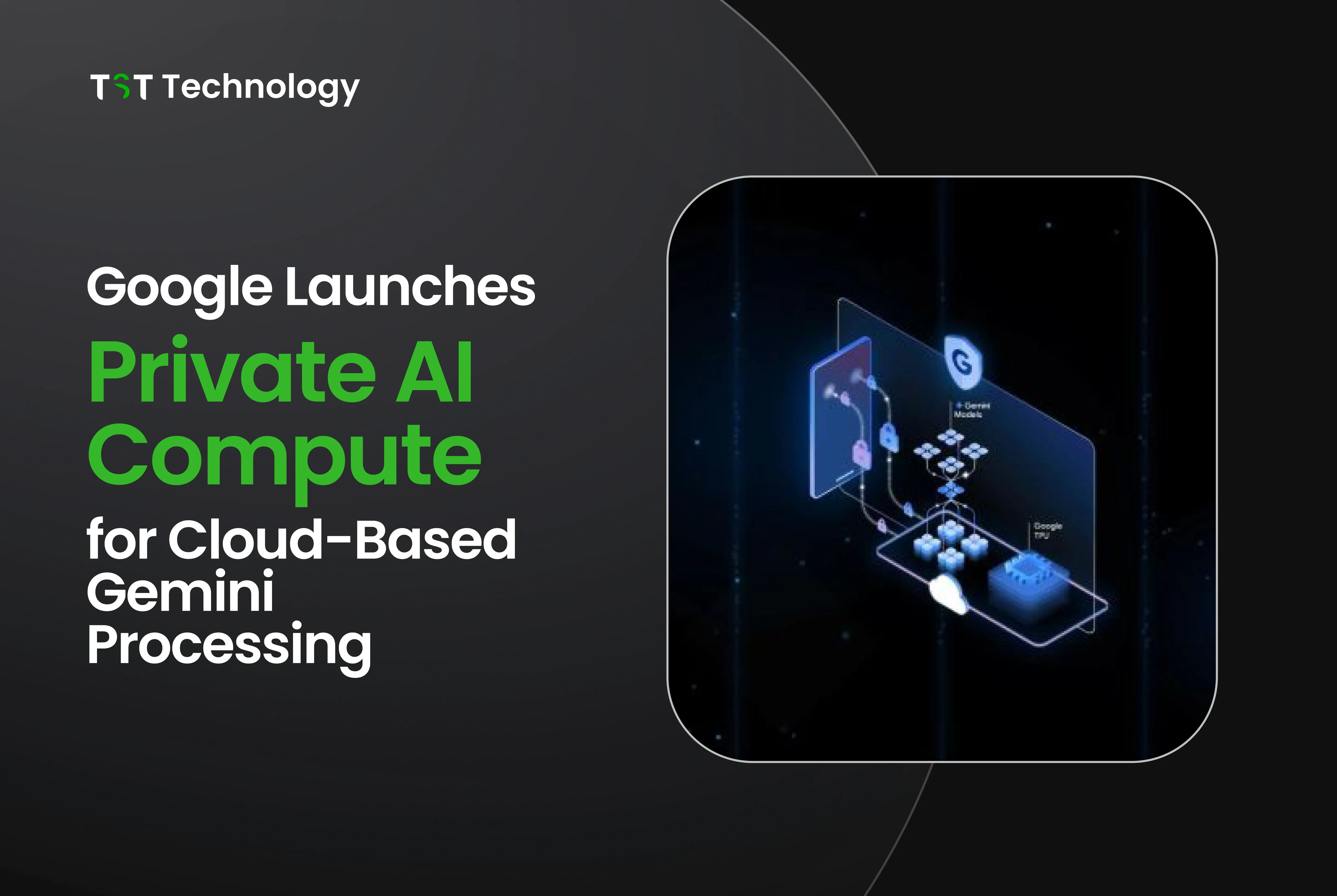
Google introduced Private AI Compute, a new cloud system that gives powerful AI processing while still protecting user privacy, like on-device processing. It is designed for handling Gemini model requests securely. The system uses special TPUs with built-in Titanium Intelligence Enclaves (TIE) that create locked, protected spaces for AI processing. When a user sends a request, the device connects through an encrypted and verified channel, ensuring that Google’s engineers or administrators cannot access the data at any point.
Private AI Compute is built so that all data, inputs, and AI results disappear automatically after each session. Google also uses strong security methods like memory encryption, protection against physical attacks, no shell access, and hidden IP relays. A security review by NCC Group found a timing issue in the IP relay system and some denial-of-service risks, and Google is working on fixes. The platform will first be used on Pixel 10 devices to power new AI features such as Magic Cue improvements and smarter Recorder app summaries.
Google Invests €5 Billion in German AI Infrastructure
Alphabet, Google’s parent company, announced plans to invest about €5 billion (around $5.8 billion USD) in Germany. The investment includes building a new data center near Frankfurt and expanding its current facility in Hanau. This marks a major step in strengthening Google’s presence in Europe.
These investments help make Germany a key leader in AI and cloud computing within Europe. They also show that big tech companies trust Europe’s long-term digital growth, even with stricter data protection and energy rules. Google’s expansion builds on its existing European data centers and highlights the growing competition to secure strong computing capacity across the region.
Google Pixel Drop November 2025 Brings Multiple AI Features
![]()
Google released its new Pixel Drop update on November 12, 2025, for Pixel phones worldwide. The update adds several new AI-powered features, such as advanced photo editing and smarter scam detection. Users can now use generative AI Nano to remix photos in Google Messages, adding new elements or even turning people into 3D figurines. Google also introduced Scam Detection, which uses on-device AI to recognize common scammer speech patterns. This feature is available on Pixel 9 and newer models in the UK, Ireland, India, Australia, and Canada.
The update also brings Call Notes powered by Gemini Nano. It can record calls, create transcripts, summarize conversations, and suggest next steps in Australia, Canada, the UK, Ireland, and Japan. Google Maps now has a Power Mode that saves battery by showing only essential route details. Google Photos gained new editing tools that let users add or remove objects cleanly and even fix facial expressions using other photos on the device. Other improvements include better Magic Cue suggestions, a VIP contacts emergency widget, and AI-generated notification summaries on the lock screen.
Google Announces $40 Billion Investment in Texas for AI Data Centers
Google has announced a monumental $40 billion investment to build three new data centers in Texas, signaling a massive expansion of its capacity for artificial intelligence initiatives. The announcement, made by Alphabet and Google CEO Sundar Pichai alongside Texas Governor Greg Abbott, marks Google's largest investment in any single state and underscores the fierce competition among tech giants like Microsoft, Meta, and Amazon to build out the necessary infrastructure for advanced AI models.
The new data centers will be located in Armstrong County and Haskell County, with one of the Haskell facilities being paired with a new solar and battery storage plant to minimize its impact on the electrical grid. This move positions Texas as a central hub for AI development, leveraging its capacity for energy expansion alongside technological innovation. The investment is planned through 2027 and is seen as a critical step in supporting the next generation of AI and cloud services.
Microsoft Forms MAI Superintelligence Team Led by Mustafa Suleyman
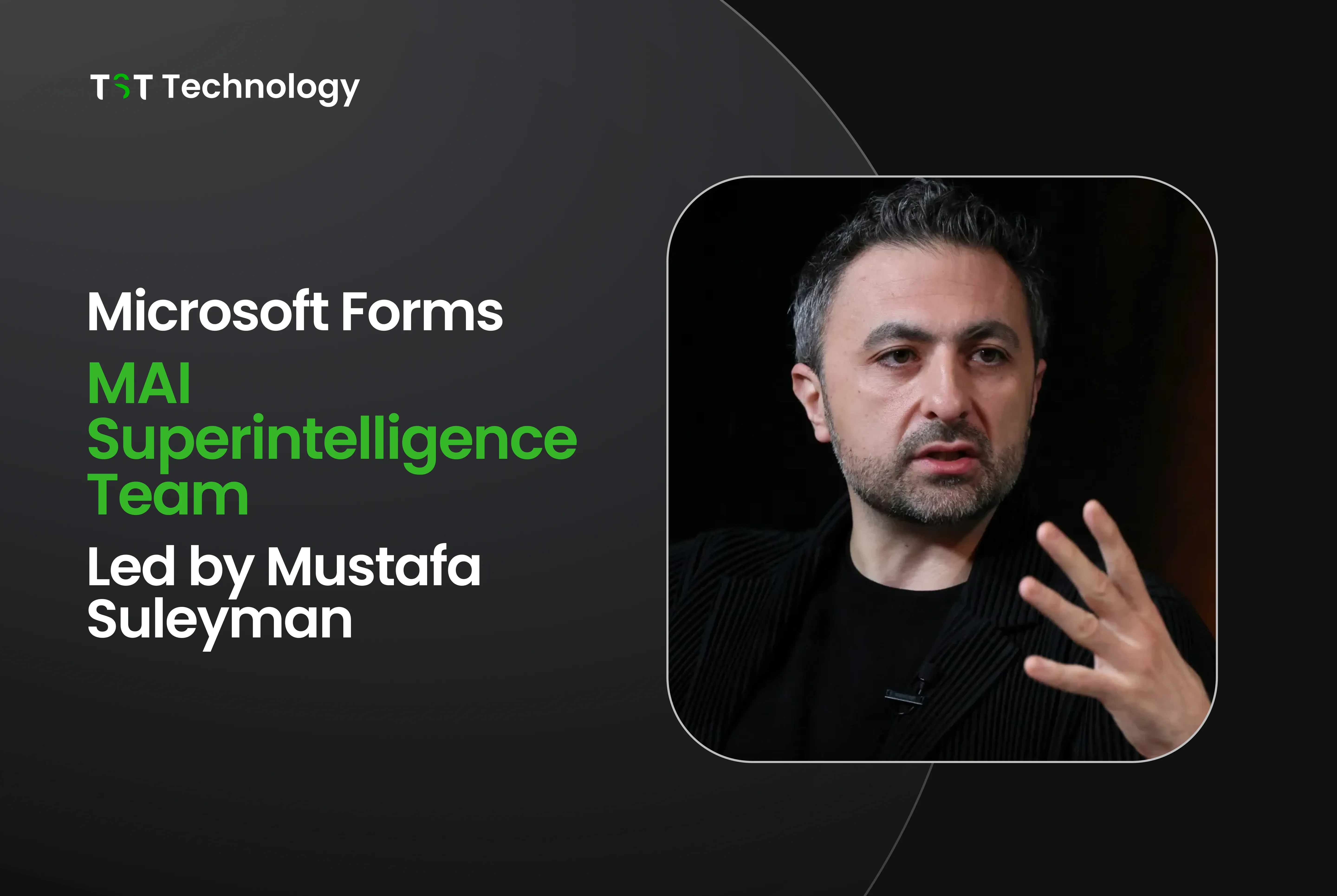
Microsoft has created a new AI research group called the MAI Superintelligence Team, led by Mustafa Suleyman. The team will focus on building powerful AI systems that can perform better than humans in specific areas, starting with medical diagnostics. Their goal is to develop medical AI that can reach expert-level accuracy within two to three years, helping doctors detect diseases earlier and improve patient care.
Instead of trying to build a general AI that can do everything, Microsoft is focusing on what Suleyman calls “humanist superintelligence.” This means creating advanced AI that solves clear, real-world problems while staying safe, grounded, and easy to control. Microsoft will invest heavily in this project, but only in ways that bring direct human benefit, such as healthcare and renewable energy.
The team includes top researchers like Karen Simonyan and will hire talent from leading AI labs worldwide. Suleyman also stressed that Microsoft does not want to build unlimited, all-purpose AIonly useful tools designed to help people.
Major AI Startup Funding Rounds Throughout November 2025
In the first two weeks of November 2025, more than $3.5 billion was invested in AI startups. This shows that venture investors still have strong confidence in AI companies. The funding went to businesses working on AI infrastructure, enterprise tools, and specialized AI products across different industries.
Some of the biggest funding rounds included Metropolis with $500 million, Armis with $435 million, Beacon Software with $250 million, Synchron with $200 million, and Braveheart Bio with $185 million. Many other startups also raised between $30 million and $133.7 million. Most investments focused on enterprise AI agents, healthcare automation, cybersecurity, and infrastructure. These trends match the larger picture for 2025, where AI made up 52.5% of global venture capital, reaching a total of $192.7 billion for the year.
Most investments focused on enterprise AI agents, healthcare automation, cybersecurity, and infrastructure. Many of these AI-powered products are being delivered through mobile app development strategies, capitalizing on the surging adoption of AI apps that saw 112% year-over-year growth in 2025. These trends match the larger picture for 2025, where AI made up 52.5% of global venture capital, reaching a total of $192.7 billion for the year.
Conclusion
The November 2025 AI landscape reveals a fundamental shift as infrastructure has become the battlefield where tech giants compete for dominance. With over $100 billion in combined announcements from AWS-OpenAI's $38 billion partnership to Google's $40 billion Texas expansion, companies are clearly betting that controlling computational capacity and data privacy will determine AI leadership.
These investments, paired with breakthrough models like GPT-5.1 and strategic partnerships, signal that artificial intelligence has transitioned from experimental technology to essential business infrastructure that will reshape industries for years to come.






